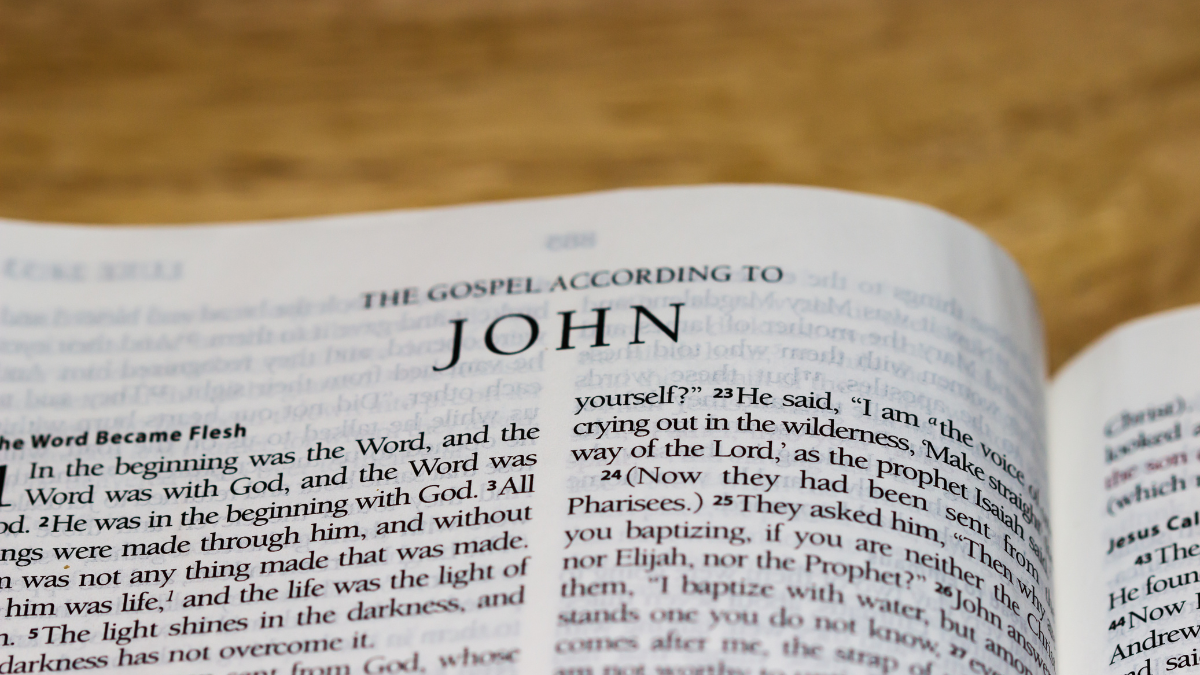A dominant theme in the gospel of John, which seems to have been written for both ancient Jews and philosophically minded pagans is that we can know the source of reality in person in Jesus Christ. The opening line of the gospel says, “En arche en ho Logos”. In the beginning was the Logos, the Word, and the Word was with God and the Word was God, “theos en ho Logos.” The repetition of the word Logos, that’s Word, clearly speaks to one of the most basic longings of both Jews and pagans, the Greeks and Romans. Jews believed that God’s first act was to speak the universe into existence. In Genesis 1, we read, “Let there be light, and there was light.” So God’s Word is the source of everything for Jews, but this idea also has a happy connection with important pagan concepts.
So the Logos, the Word was this mysterious operating system behind the rational order of creation. By opening his gospel with a reference to the Logos, who turns out to be Jesus, John makes clear that his gospel is way more than a biography. It’s the answer to the fundamental longing to know the source of reality. The theme comes into really sharp focus a few lines later, where John writes, “Ho Logos sarx egeneto,” the Word, God’s Word, flesh became, that’s Jesus. It’s really confronting language.
In the Greek of John’s day, the word pneuma, spirit, referred to the spiritual aspect of being a human. Sukos, the soul, referred to the mental or psychological dimension. Soma, body referred to the total mind-body package of human life. But sarx, or flesh, referred to the earthly material component of existence. So if pneuma or spirit is the part of the human being that connects us to the divine, sarx, or flesh, is what grounds us in the earth. The Logos, the source of all reality, didn’t just take on spirit or soul or body, He became sarx, flesh. This is how we get the doctrine and the word incarnation. It’s just the Latin incarno, or in flesh.
Now, all of this was really confronting for John’s original pagan readers. Greeks and Romans had such a low view of created matter, it was really difficult for them to imagine that infinite divinity could take on flesh. In fact, this was such a problem that some early Christians, like in the second century, tried to change the whole basis of Christianity. There was a group called the Gnostics, that’s the word for special knowers, who said the whole point of Jesus was to deliver our spirit from this fleshy world. They even insisted that the God who created flesh, the Old Testament God, was a lesser deity and we actually need to be rescued from that deity.
Then there was another group of semi-Christians called the Docetists. That word comes from the Greek to seem or to appear. They didn’t quite go so far as the Gnostics, but they did say that God couldn’t actually have become flesh. He must have just seemed to be flesh, appeared to be flesh.
I believe with perfect faith that God does not have a body. Physical concepts do not apply to him. There is nothing whatsoever that resembles him at all.
That’s in section five of the Quran. The fact that Jesus had to depend on daily food is thought to be the knockdown argument against the incarnation. The majestic creator could never find himself in the inglorious position of depending on food.
But of course, that’s not the half of what the gospel says about the inglorious ordinary acts of God in the incarnation. If you go forward in John’s gospel to chapter 13, it tells how Jesus got down on his knees and washed his disciples feet like a household slave might do. The disciples are scandalised at the dishonour to Jesus this might imply, and even that’s just a precursor to Christ’s fleshy, bloody death on the cross for our sake. The incarnation says not only did God take on flesh, he served and suffered in the flesh for us. Christianity is almost by definition down to earth.
By John Dickson
Everyday Sacred
Want to hear the rest of the episode?
Check out episode 47: “Everyday Sacred”















































